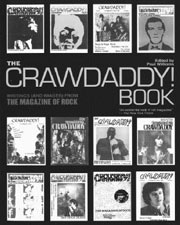FOLLOWING UP LAST YEAR’S much-lauded Ramones remasters, Rhino’s second installment of the band’s catalog (each loaded, once again, with extensive liner notes and bonus tracks) provides a chronicle of the group’s unsteady 1979-84 transitional period.
On paper, the Ramones’ wide-screen pop ambitions seemed tailor-made for Phil Spector’s wall-of-sound production. But 1979’s End of the Century, despite being the band’s highest-charting album at No. 44, lacks stylistic and sonic focus. For example, while “Chinese Rock” is a steamroller anthem every bit as powerful as the Heartbreakers’ earlier version, by comparison what should be a defining manifesto, “Do You Remember Rock ‘n’ Roll Radio,” sounds downright rinky-dinky thin and thematically corny (guys, ditch the ’50s horns!). Several bonus tracks, album demos done with former producer Ed Stasium, provide an illuminating coulda-been contrast.
Next came 1981’s Pleasant Dreams, and as produced by 10cc’s Graham Gouldman, it captures a fair amount of lightning in a bottle—the throbbing “We Want the Airwaves,” the mellifluous “She’s a Sensation,” the harmony-strewn “7-11″—and represents a partial return to form. The bonus tracks, particularly Beach Boys pastiche “Touring” and another brace of Stasium demos, are uniformly engaging. 1983’s Richie Cordell- produced Subterranean Jungle, however, is a barely contained mess (especially the dated ’80s drum sound), its only redeeming factor the loony thrasher “Psycho-Therapy.” Here, the bonus tracks—medium-fi demos, B-side “Indian Giver,” and unreleased “New Girl in Town”—are infinitely more interesting than the main program. By the next year, even with producer Stasium officially returning to the fold, the self- inflicted damage was deep (the band was also breaking in its third drummer). For every inspired moment on Too Tough to Die (the dark, rumbling “I’m Not Afraid of Life,” the peppily offbeat “Daytime Dilemma”), there was another one phoned in, such as the title cut or “Danger Zone”—which, as evidenced by bonus track alternate versions featuring bassist Dee Dee taking over Joey’s vocal spot, clearly had potential and oomph early in the game. Speaking of bonus tracks, the cover version of the Stones’ “Street Fighting Man,” a U.K. single, is a must-hear, helping to partially redeem a spotty album.
Overall, these discs offer enough pleasures—it is the Ramones, after all!–to recommend the purchase of each. But recalling that original drummer Tommy Erdelyi was a key production factor on the first four classic records, this quartet of albums also paints a portrait of a group relying heavily on “name” producers as it undergoes a significant artistic crisis.









